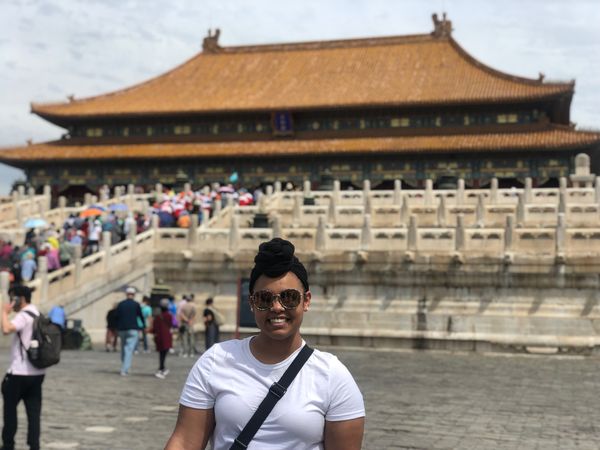
There is nothing quite like the chaos of Beijing. Cargo trucks effortlessly crossing three-lane highways during rush hour, people on the subway packed closer than sardines, and the faint smell of unfamiliar fruits were just a few of the constant reminders that I was no longer in New Jersey.
I initially came to Beijing to participate in Notre Dame International's Professional Experience Program. Through this program, I had the opportunity to intern at Caixin Media, a Chinese economic journalism organization, for nearly two months during summer break. Chinese journalism may seem like an absurd oxymoron; yet, I saw this as a chance to see how a nation, infamous for heavy restrictions on speech, expression, and religion, starts dialogues about its own controversy and news. Needless to say, this was an eye-opening experience. Around every corner was another cultural difference, now an open door for self-reflection.
Throughout my time in Beijing, I was able to experience some once in a lifetime things. For starters, our NDI program was able to walk within the Forbidden City, take a look inside the Temple of Heaven, and walk - or should I say climb - from watchtower to watchtower on the Great Wall! I quickly became familiar with China's expansive public transportation system, improved my spoken Mandarin, ate foods that I didn't even know existed, and discovered that there is a greater world beyond the borders of my homeland.
Regardless of these incredible moments, being in China meant that I had to practice a certain level of caution when within the Great Firewall - a label for China's extensive cybersecurity laws. Upon touching down in Beijing International Airport, I immediately knew that there were going to be a few sensitive topics of discussion. The most prominent being the US-China Trade War, the upcoming thirtieth anniversary of Tiananmen Square, and the protests in Hong Kong. What I did not foresee was how my internship at Caixin Media would provide me with a behind-the-scenes look into Chinese censorship laws and political climate. It was through the coverage of these topics - and at times, lack thereof - that I gained an immense amount of respect for the organization I was working for.
Caixin is a relatively new organization that has built its reputation by walking across the thin ice above a sea of censorship laws and regulations. Rather than playing it safe, Caixin has taken some awestriking risks in order to preserve its integrity as one of the mainland's few sources of honest media. Through their unwavering perseverance, I learned that Chinese censorship is a complex and successful attempt at societal regulation. But the fight for knowledge and openness is on the rise.
Among this war's hidden soldiers are the journalists at Caixin. I must thank these incredible people who took me under their wings and eased my transition. These internationally-minded individuals continue to work tirelessly in order to bring a more free press to the general public.
So yes, this summer has been one of growth and changing perspectives. I learned more about the world, its people, and the economics of freedom. This piece is incapable of explaining all that I have seen and experienced. Reflecting on my time in the People's Republic, I have a greater appreciation for both the similarities and differences between my own culture and that of Beijing.